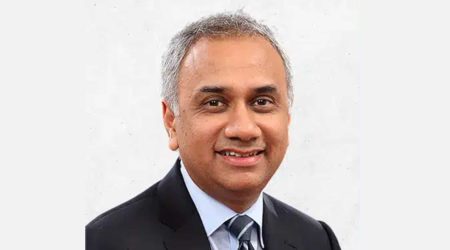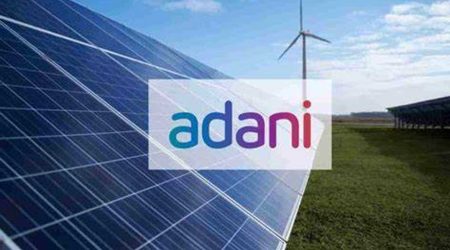Dr Sohail Mahmood
Iranian President Ebrahim Raisi visited Pakistan from April 22-24. He met with the top leadership and the two countries signed eight agreements to enhance cooperation in the different fields including energy, trade, science technology, agriculture, health, culture, security, and commerce.
Earlier in January, the two countries had engaged in an unprecedented tit-for-tat missile strike which had considerably strained their relationship. Raisi’s visit is part of those mutual efforts to repair relations between Iran and Pakistan. Given the rising tensions in the Middle East, it was a significant diplomatic event for both countries.
The two sides discussed the multibillion-dollar project which was supposed to be completed in 2014. The pipeline deal, signed in 2010, envisaged the supply of up to a billion cubic feet per day of natural gas for 25 years from Iran’s South Pars gas field to Pakistan. The pipeline was to stretch over 1,900 kilometers, with 781 km within Pakistan and 1,150 km within Iran.
Iran has already invested $2 billion to construct the pipeline on its side of the border, making it ready to export. However, construction has not started on the Pakistani side, citing international sanctions on Iran as the reason.
In 2014, Pakistan asked for a 10-year extension to build the pipeline, which expires in September this year. Iran can take Pakistan to international court and fine the country. Local media reported that Pakistan can be fined up to $18 billion for not holding up its half of the agreement. Finally, faced with a potential fine, Pakistan in 2024 permitted in principle to commence plans to build an 80km segment of the pipeline.
In March, Pakistan said it would seek a US sanctions waiver for the pipeline. However, the U.S. said it did not support the project and cautioned about the risk of sanctions in doing business with Iran.
Iran has the world’s second-largest gas reserves after Russia, according to BP’s Statistical Review of World Energy, but sanctions by the West, political turmoil, and construction delays have slowed its development as an exporter. Originally, the deal also involved extending the pipeline to India, but it later dropped out of the project.
Recently, Pakistan had decided to start the work on the project. In the first phase, Pakistan would build a pipeline from Gwadar to the Iranian border.
Given the increased US sanctions regime on Iran because of its nuclear program and the recent conflict with Israel, Pakistan fears it would invite U.S. sanctions for importing Iranian gas.
On April 25, Pakistan’s Defense Minister Khawaja Asif expressed hopes that the snags in the completion of the project will be removed, and it will be finished. In this regard, the minister also termed Raisi’s “successful” Pakistan visit a “great development”.
Meanwhile, the US has very recently hinted towards the “potential risk of sanctions” in light of the business deals between Iran and Pakistan following the visit.
In a 28-point joint statement issued following the Iranian president’s three-day visit to Pakistan on April 24, the two countries agreed to expeditiously finalize the free trade agreement (FTA) and boost their bilateral trade to $10 billion over the next five years through joint economic projects, setting up of joint border markets, economic free zones, and new border openings.
Agreeing to turn the common border from a ‘border of peace’ to a ‘border of prosperity,’ both countries reiterated the importance of cooperation in the energy domain, including trade in electricity, power transmission lines, and the Iran-Pakistan gas pipeline project. Both sides underscored the imperative of long-term socio-economic development in Iran’s Sistan-Baluchistan and Pakistan’s Baluchistan provinces.
For swift finalization of FTA, both sides agreed to hold the next sessions of Annual Bilateral Political Consultations (BPC) and Joint Business Trade Committee (JBTC) as well as the 22nd round of the negotiations of the Joint Economic Commission (JEC) soon.
They also agreed to facilitate the regular exchange of economic and technical experts, as well as delegations from chambers of commerce from both countries to intensify economic cooperation. The declaration of the ‘Reemdan border point’ as an international border crossing point under TIR and the opening of the remaining two border sustenance markets was also agreed upon.
There was consensus to fully operationalize barter trade mechanisms between the two sides to facilitate economic and commercial activity, particularly under ongoing collaborative endeavors, such as border sustenance markets.
Regarding connectivity, the two sides expressed satisfaction over the regular shipment of goods under the TIR Convention and agreed to fully operationalize the Convention for further efficient, speedy, and barrier-free trade.
As members of the Economic Cooperation Organization (ECO), Iran and Pakistan expressed firm resolve to enhance cooperation in connectivity, infrastructure development, and energy sectors and agreed to expand linkages between Gwadar and Chabahar ports. They also expressed their agreement to start negotiations on free trade in ECO.
Meanwhile, the American reaction to the visit was expected, it is believed that the US is displeased with the Iranian president’s visit, given its current efforts to isolate Tehran.
Just days before the Iranian President, the U.S. imposed sanctions on four firms including three Chinese companies for allegedly aiding Pakistan’s ballistic and long-range missile program, a move some observers interpret as a signal to Islamabad amid its hosting of the Iranian President.
Pakistan has often tried to tread a careful path in maintaining ties with Iran and Saudi Arabia. Pakistan knows that this time Saudis don’t have many reservations given their relationship with Iran improved in recent months.
Pakistan would want to have cordial relations with Iran and finalize the gas pipeline project soon because of its own desperate energy needs. However, the geopolitics of the region are preventing this development. Notwithstanding official claims, the visit wasn’t remarkably successful; there wasn’t any significant development on the stalled Iran-Pakistan gas pipeline project.
Today, Pakistan can’t be caught in the middle of a conflict between Iran and the US as it desperately needs American assistance to overcome the severe economic crisis, primarily through the coming IMF deal. Therefore, Pakistan can’t risk losing American support at this critical time. Pakistan is aware that any expansion of economic relations with Iran will come at a high cost. Any formal expansion of trade and banking activity is bound to be slow.
The U.S. and Iran are sworn rivals. American efforts to contain Iran go back decades. The United States has sanctioned hundreds of Iranian individuals and entities accused of having links with the banned Iranian IRGC like the Hezbollah, Houthis, and Hamas. Earlier in April 2024, the UK and the US imposed a new round of sanctions after Iran’s unprecedented attacks on Israel.
Pakistan has little option but to go slow in developing its relationship with Iran. Therefore, Pakistan will continue to play the balancing act between the US and Iran. The future of Pakistan’s relationship with Iran depends on this balancing act, so to speak. In sum, the Raisi visit was only significant in symbolizing the normalizing of relations between the two erstwhile strained neighbors, nothing more than that.
——————————-
Profile: Dr Sohail Mahmood is a member of the Editorial Board of International Affairs Forum, Center for International Relations (CIR), Washington, DC. He holds a Ph.D. with honors in Political Science from Northern Arizona University, Flagstaff, AZ. He hails from Lahore, Pakistan.
Disclaimer: The views expressed are not necessarily those of The South Asian Times










